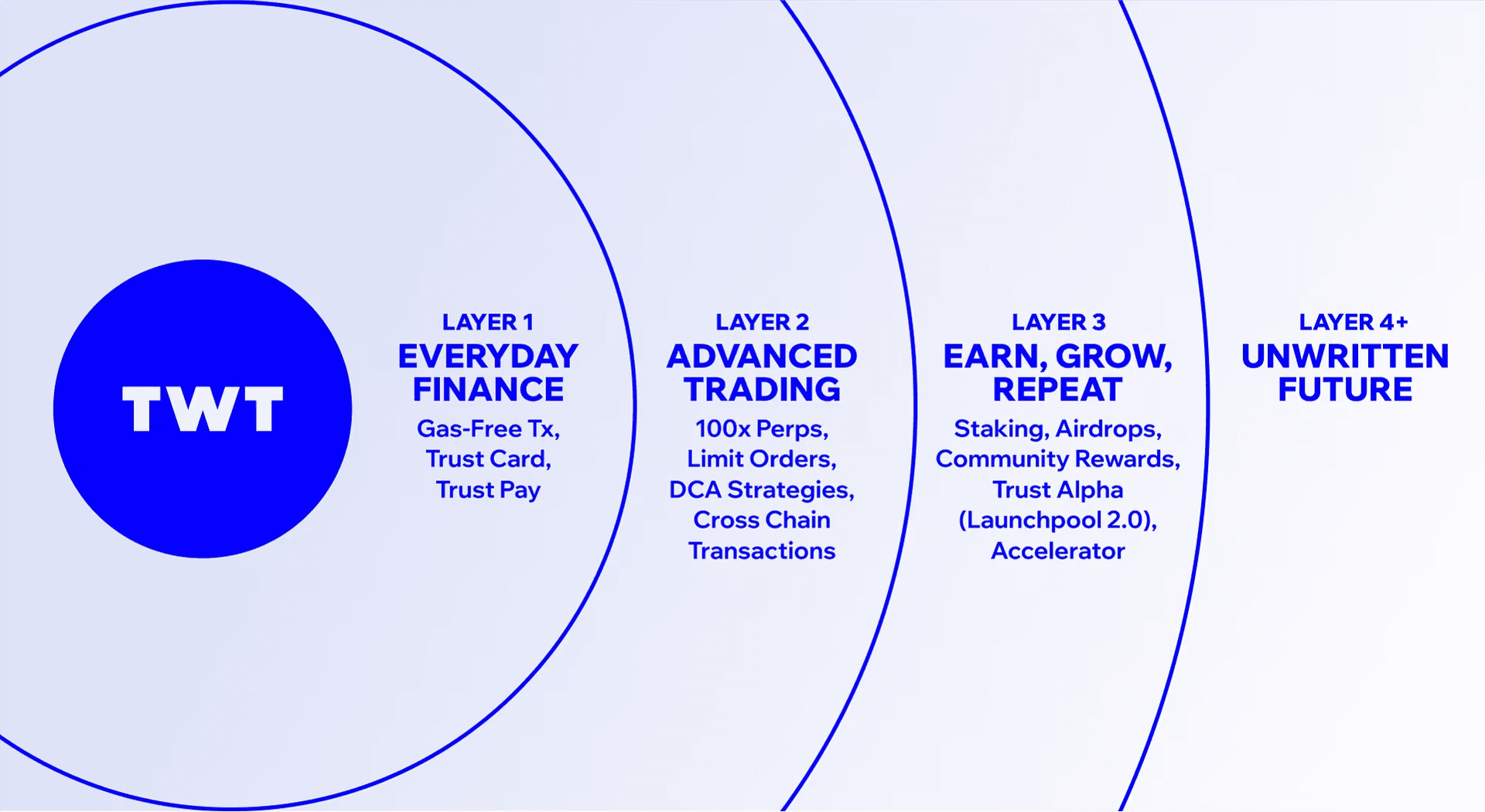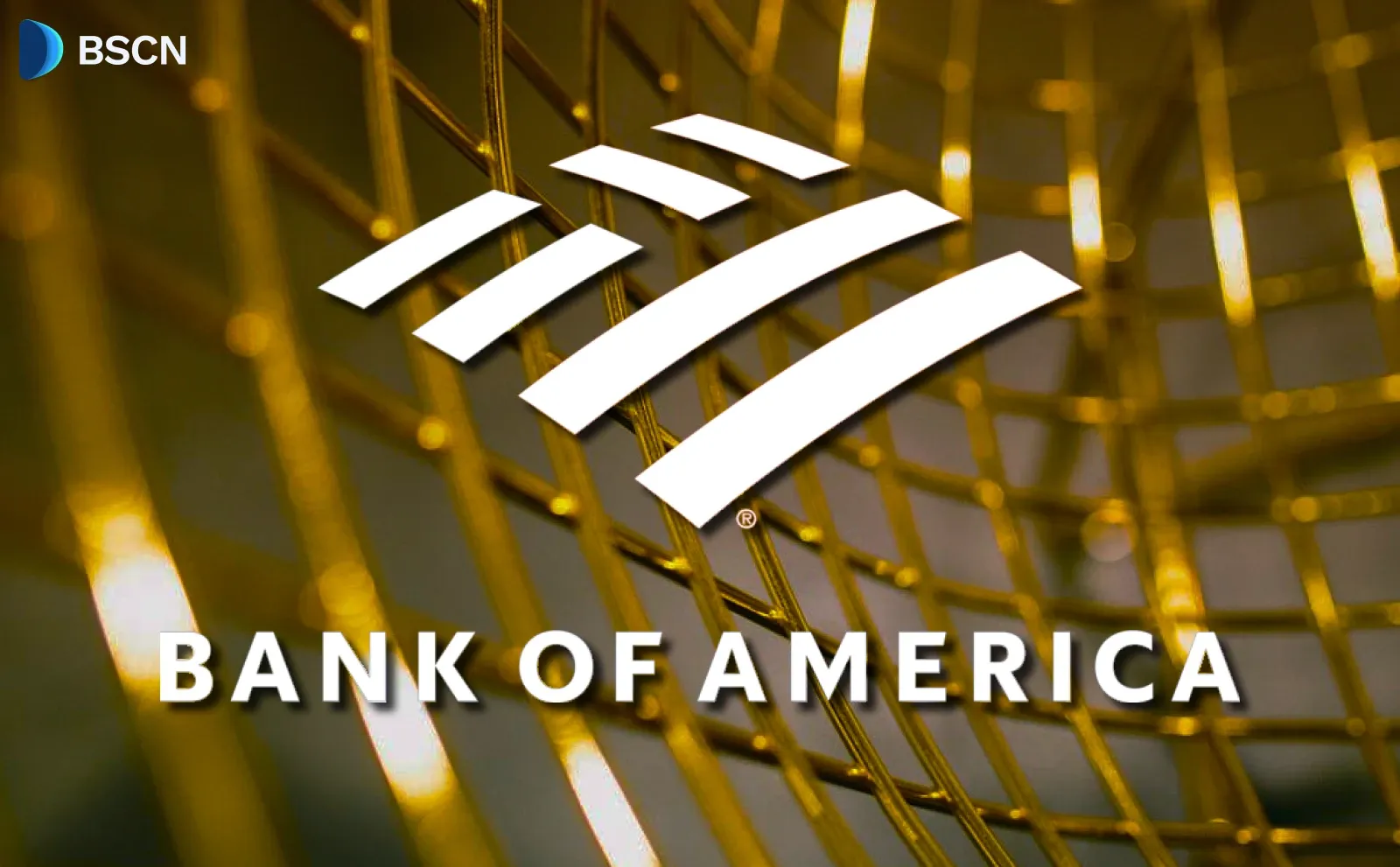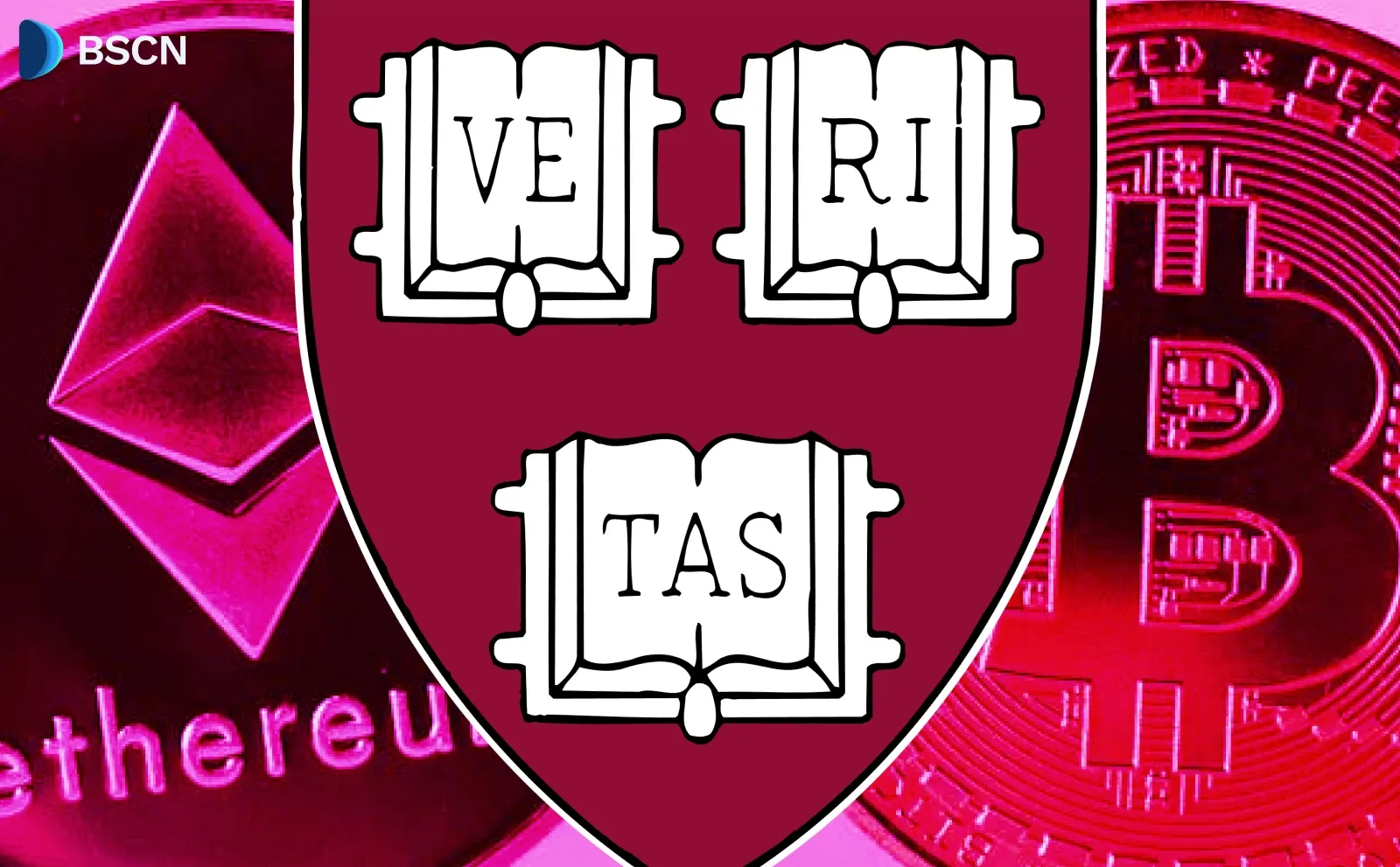Trust Wallet Unveils TWT Litepaper: What Does it Mean for Users?

Trust Wallet releases the TWT Litepaper, outlining new utilities, roadmap phases, and benefits designed to enhance the user experience.
Miracle Nwokwu
September 22, 2025
Table of Contents
Trust Wallet, a prominent self-custody cryptocurrency wallet, released its Trust Wallet Token (TWT) Litepaper on September 18, 2025, detailing a refreshed vision for the token's role within the ecosystem. The document, accompanied by a new product roadmap, emphasizes how TWT will integrate more deeply with wallet features to enhance user experiences.
While the release has drawn attention from industry figures like Binance founder CZ, who noted TWT's evolution from an experimental token to one with expanding utilities, the focus remains on practical improvements for everyday users.
Trust Wallet and TWT: History and Milestones
Trust Wallet began in 2017 as a mobile wallet designed for secure, decentralized storage of cryptocurrencies, quickly gaining users due to its emphasis on self-custody and ease of use. By 2018, Binance acquired the platform, integrating it into a larger ecosystem while preserving its non-custodial nature. Over the years, Trust Wallet has expanded to support over 100 blockchains and more than 210 million downloads worldwide, securing user balances exceeding $30 billion and handling average monthly swap volumes above $1 billion. These figures reflect steady growth, with revenue increasing fourfold from 2023 to 2024 and total value locked in its Earn products surpassing $750 million.
The Trust Wallet Token emerged in 2020 through a community-driven launch, without traditional fundraising, distributing tokens via airdrops to encourage broad participation. Initially positioned as an experiment, TWT faced challenges when its fully diluted valuation rose rapidly, prompting a significant adjustment. On October 3, 2020, the team executed a burn of 88,999,999,900 tokens—effectively 99% of the supply—to promote sustainability and align with long-term goals. This move, voted on by the community through early DAO governance, underscored Trust Wallet's commitment to transparency. Since then, TWT has operated on the BNB Smart Chain, evolving from a basic token to one tied closely to wallet functionalities.
Key milestones include achieving ISO certifications for security (ISO/IEC 27001:2022 and ISO/IEC 27701:2019), introducing features like FlexGas for flexible gas payments using stablecoins or TWT, and maintaining a 35% market share among self-custody wallets. Recent developments, such as audits by firms like Quantstamp and Halborn, have further bolstered its reputation for safety, with all operations running locally in the app to minimize risks. These steps have positioned Trust Wallet as a reliable tool for both novice and experienced users navigating the complexities of blockchain interactions.
TWT Utilities
At its core, TWT serves as a BEP-20 utility token that unlocks various benefits within the Trust Wallet ecosystem, structured around user engagement and holding levels. The Litepaper outlines several practical applications, starting with loyalty rewards: users who lock TWT and perform actions like swaps can qualify for discretionary perks, such as airdrops, yield boosts in Earn products, and exclusive access to features. This system scales with platform activity, meaning rewards could increase as more people use the wallet.
Fee discounts represent another key utility, allowing holders to pay reduced rates for swaps, fiat purchases, or sales—potentially deeper savings during high-usage periods. Gas payment options enable buying TWT without fees and using it to cover transaction costs at a discount compared to other tokens, simplifying operations on chains like Ethereum or BNB Chain. For those seeking enhanced service, TWT provides access to premium support with faster response times and advanced tools.
Community aspects add a participatory layer: holders gain voting rights on marketing and event topics (one address equals one vote), entry to exclusive gatherings, and limited-edition merchandise. A tiered framework—Seeker for basic gas savings, Explorer for deeper rewards through holding and engagement, and Moonwalker for premium benefits—ties these utilities to user progression, encouraging ongoing interaction. As the ecosystem grows, additional utilities like collateral in DeFi protocols may emerge, provided by independent integrations. Overall, these features aim to make routine wallet tasks more efficient and rewarding without compromising self-custody principles.
Token Distribution & Supply
TWT operates with a fixed supply of 1 billion tokens, ensuring no new tokens can be minted, which helps maintain scarcity and predictability. More than 40% of the supply has been in circulation for over five years, primarily distributed through community airdrops to foster inclusivity. The remaining allocations are reserved for strategic purposes, including liquidity provision, partnerships, and incentives for the core team to drive ecosystem development.
This model avoids inflationary pressures, focusing instead on utility-driven value. For users, this means holding TWT could align with long-term platform growth, as allocations support initiatives like builder accelerators that connect developers with the community. Transparency in distribution, combined with the 2020 burn event, has helped build trust, though the Litepaper notes that all benefits are subject to potential adjustments based on ecosystem needs.
Breakdown of the Roadmap
The roadmap unfolds in phased layers to build a comprehensive Web3 experience, with TWT as the connecting element. Phase one, "Everyday Finance, Reinvented," targets Q4 2025 and focuses on seamless daily use: gas-less transactions up to 10 times cheaper than traditional methods, instant crypto buys, local cash conversions, scam protection, and spending tools like Trust Card and Trust Pay.

Moving into 2026, the second layer introduces "Advanced Trading" capabilities, such as perpetual contracts with up to 100x leverage, prediction markets, limit orders, dollar-cost averaging, AI-powered analytics, and optimized cross-chain swaps—all while keeping assets self-custodied. The third layer, "Earn, Grow, Repeat," emphasizes passive income through personalized staking, lending with TWT yield boosts, pre-token generation event airdrops, and Trust Alpha, a revamped launchpool for early project access that could feed into the Binance ecosystem.
The fourth layer remains open-ended, labeled "Layer Four and Beyond," inviting future innovations in areas like digital identity, credit systems, and embedded DeFi. TWT integrates across all phases, powering features like sponsored gas and exclusive rewards. The rollout begins in the coming months, with user feedback shaping adjustments, aiming for one billion users by 2030 through this iterative approach.
What This Means for Users
For Trust Wallet users, the Litepaper and roadmap signal a shift toward a more integrated and user-centric platform. Those holding TWT stand to gain from tiered benefits, such as reduced gas fees when paying with the token or accessing premium support, which could lower the barriers to frequent transactions. Newcomers might find the Seeker tier an easy entry point for basic savings, while long-term holders could progress to Moonwalker status for advanced perks like voting on community initiatives or early airdrops via Trust Alpha.
Practically, this could translate to cost savings on swaps—potentially 10-20% discounts based on tier—and enhanced security through features like private mempools to prevent maximal extractable value attacks. Users interested in earning might leverage TWT as collateral in supported DeFi protocols or participate in yield-boosting staking pools. To get started, download the latest app version, hold TWT in your wallet, and engage with features like FlexGas for gas payments in stablecoins. Monitoring the official blog and X account (@TrustWallet) for tier launch details will be key, as benefits roll out progressively.
The emphasis on self-custody remains intact, ensuring users retain control amid these expansions. While not every feature guarantees immediate returns, the structure encourages active participation, potentially making Trust Wallet a one-stop tool for managing, trading, and growing crypto holdings.
In summary, the TWT Litepaper positions the token as a foundational element in Trust Wallet's push for broader adoption. By tying utilities to real-world needs like fee reductions and rewards, it offers users tangible ways to engage more deeply with the platform.
Sources:
- Trust Wallet’s Next Era (Trust Wallet Blog): https://trustwallet.com/blog/announcements/trust-wallet-next-era-new-roadmap-and-renewed-vision-for-twt?utm_medium=blog&utm_campaign=TWT&utm_source=Trust_iOS_Browser
- Trust Wallet Token (TWT) Tokenomics Litepaper: https://trustwallet.com/blog/community/trust-wallet-token-twt-litepaper
Read Next...
Frequently Asked Questions
What is the Trust Wallet TWT Litepaper?
The Trust Wallet TWT Litepaper, released on September 18, 2025, outlines the updated role of Trust Wallet Token (TWT) within the ecosystem. It introduces new utilities, phased roadmap developments, and user benefits designed to enhance self-custody and engagement.
What are the key utilities of the Trust Wallet Token (TWT)?
TWT serves as a BEP-20 utility token offering loyalty rewards, fee discounts, flexible gas payments, premium support access, and community voting rights. It also enables entry into exclusive events and could be integrated into DeFi protocols as collateral in the future.
How is TWT distributed and what is its supply model?
TWT has a fixed supply of 1 billion tokens, with over 40% distributed via community airdrops. The remaining allocation supports liquidity, partnerships, and ecosystem development. No new tokens can be minted, ensuring scarcity and predictability.
What are the phases of the TWT roadmap?
The roadmap unfolds in four layers: Phase 1 (Q4 2025): Everyday finance tools like gas-less transactions, instant crypto buys, and scam protection. Phase 2 (2026): Advanced trading features, including perpetual contracts and AI-powered analytics. Phase 3: Earn-focused products like staking, lending, and Trust Alpha for early project access. Phase 4 and Beyond: Future innovations such as digital identity, credit systems, and embedded DeFi.
How does the TWT Litepaper benefit everyday Trust Wallet users?
Users gain tier-based benefits, including lower gas fees, swap discounts, yield boosts, premium support, and early access to airdrops. This encourages participation while maintaining self-custody, making Trust Wallet a more comprehensive tool for managing and growing crypto assets.
Disclaimer
Disclaimer: The views expressed in this article do not necessarily represent the views of BSCN. The information provided in this article is for educational and entertainment purposes only and should not be construed as investment advice, or advice of any kind. BSCN assumes no responsibility for any investment decisions made based on the information provided in this article. If you believe that the article should be amended, please reach out to the BSCN team by emailing [email protected].
Author
 Miracle Nwokwu
Miracle NwokwuMiracle holds undergraduate degrees in French and Marketing Analytics and has been researching cryptocurrency and blockchain technology since 2016. He specializes in technical analysis and on-chain analytics, and has taught formal technical analysis courses. His written work has been featured across multiple crypto publications including The Capital, CryptoTVPlus, and Bitville, in addition to BSCN.
Crypto Project & Token Reviews
Project & Token Reviews
Comprehensive reviews of crypto's most interesting projects and assets
Learn about the hottest projects & tokens




















